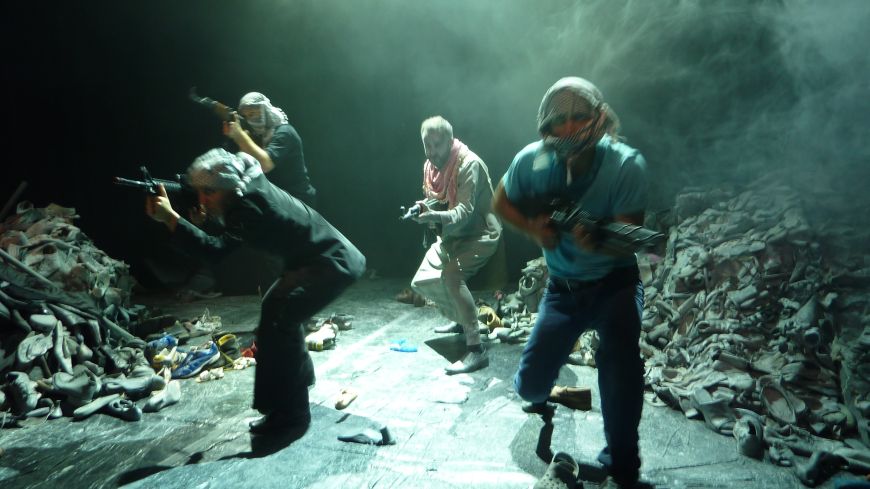
Before the USA dragged the willing and the unwilling into the quagmire of Iraq, one play captured the 'Zeitgeist' as millions marched against war. Justin Butcher's The Madness of George Dubya was a sensational satire anticipating events early in 2003.
Now from Butcher's pointed political pen, in collaboration with Palestinian co-writer/director Ahmed Masoud, has flowed a response to Israel's end of year onslaught on Gaza, a mirror to events that horrified many decent people throughout the world. If the ferocity of the blitz on Gaza's ghetto briefly stirred the conscience of the liberal West, it also revealed how numbed we have now become as bystanders witness to yet one more monstrous atrocity.
In the Edinburgh production, the initial hot-blooded reaction hailed as "deeply felt, humane and vividly expressive" by the Guardian's doyen of critics Michael Billington, has been tempered with a judicious update of the content, taken originally from contemporary reportage, and blended with a narrative derived from some personal family experiences of Ahmed Masoud, who on the eve of the Festival, found himself trapped in Gaza after returning home with scarce and precious medical supplies following his mother's operation for cancer, leaving his pregnant wife at their London home.
In February when the rushed production first aired in London, it was hailed for its 'astonishing design' - a set created by Scottish artist and theatre designer Jane Frere from a mountain of shoes. The use of shoes provoked immediate comparisons with holocaust images and resulted in an extended debate in the Jewish Chronicle which sought to brand the imagery as 'anti-semitic'. The shoes remain a focal point of this production, evoking not holocaust victims, but devastation of homes turned to dust and rubble.
The production sets out to show the impact of such cold-blooded military violence on the lives of ordinary civilians - not just the horror of the dead and injured in fighting and the collatoral casualties even among those under United Nations protection, but the anguish, the angst and suffering which fails to diminish the sheer will to survive and lead normal lives for most people. Ironically it is the loss of the will to live in the central character that provides the theme - a disorientated youth wandering in search of his own death and eventually driven to armed resistance and his ultimate demise.
However the play's most truly poignant moment is a virtual obsequy involving shoes and the recital of the names of one family - the Samouni - living in the Zeytoun neighbourhood. One family's death toll was assessed at 26, including 10 children and 7 women according to the Palestinian human rights NGO, Al Haq.
Ironically it was the founder of Al Haq, Raja Shehadeh, the Palestian human rights lawyer and Orwell Prize-winning writer and playwright, who was obliged to defend the play against the 'anti-semitic' slur in the Jewish Chronicle earlier this year. Now an Edinburgh audience can reach their own judgement on the updated version.
Times: 12-30 Aug, 2.30pm

